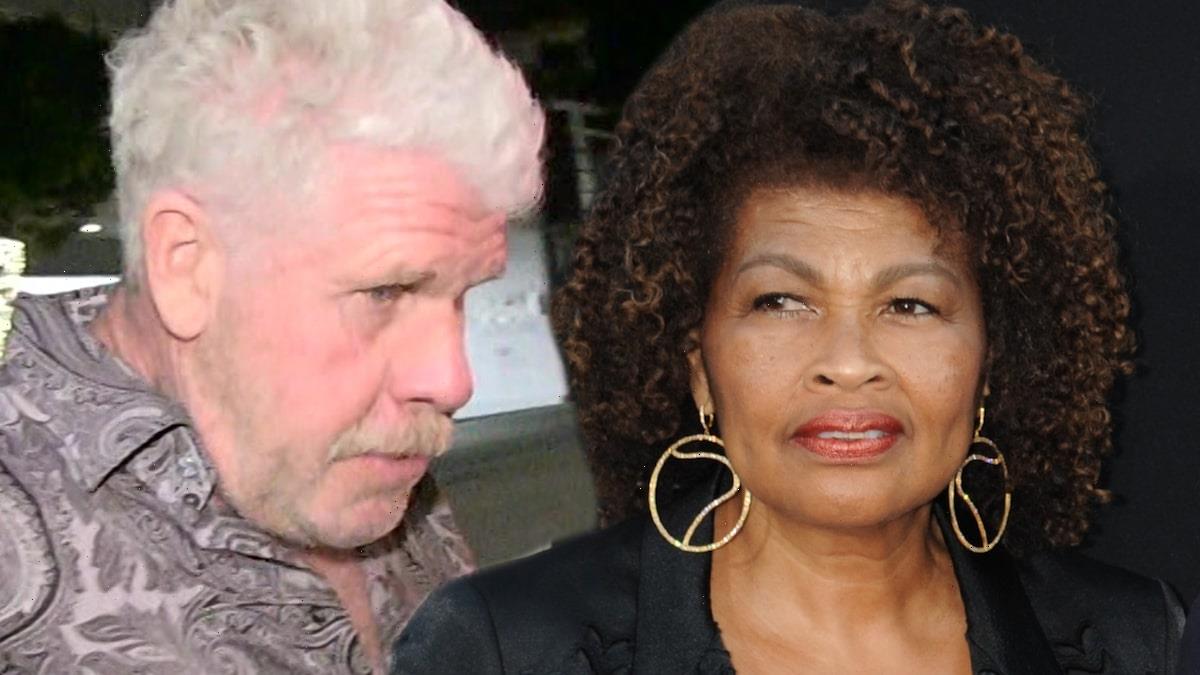It’s tempting to shut down when we’re confronted with the bleak news about the state of our planet.
We get so overwhelmed by climate anxiety that we do nothing… then feel even more rubbish for not doing enough.
It’s important we see people who are doing the work, if only to prove that we, too, can make a difference.
A new photo series from Rankin celebrates these everyday heroes, highlighting 10 people doing extraordinary things to reduce their impact on the environment.
‘The Everyday Climate Heroes all have thought provoking stories to tell,’ said Rankin. ‘Through imagery, I wanted to highlight the extraordinary change being made by these ordinary people within their local communities and to the environment.
‘This project takes the spotlight away from the world leaders and places it on the people that make up our nation, we all have a part to play in tackling the climate crisis. And now is that time.’
The photos will be displayed at 1,000 sites across the UK during COP26.
Let’s get to know the people whose faces we’re set to see splashed across billboards.
Sandra Salazar D’eca, founder of Go Grow With Love
Sandra, also known as Miss Dandelion and Soil Sistter, works to teach children in Tottenham, North London about growing food using indigenous and traditional methods, and connect city dwellers with nature.
‘I want to help people reconnect with nature and take care of our planet,’ she says. ‘My mission is to grow food with love. My mission is to bring people back to nature.
‘I asked primary school students a very simple question: “do you know where food comes from?”. [They] said that food “comes from the fridge, the freezer, the tin, the packet”. None of them said that it comes from the earth.
‘To be honest, we’ve completely depleted our environment. We don’t stop to appreciate what’s right in front of our eyes.
“We can’t just take, when we take, we need to give twice as much back.
‘We have to go back in order to go forward. We have to look back at our ancient ancestors and what they have done and what they have laid in the roads in order for us to go forward. And this is the time now. This is the time where we have to look back in order to look forward.’
Terry Pugh, community renewable energy volunteer
After working in British Coal for 16 years as a mechanical engineer, Terry retrained in medical electronics, maintaining heart monitors and defibrillators in the NHS for 21 years.
Now retired, he volunteers at the community renewable energy co-operative, teaches children in his community of Ammanford, Wales, about the climate crisis.
‘I help my friend on his community co-operative wind farm and solar panels,’ says Terry. ‘Creating our own renewable energy infrastructure in the UK could bring employment, boost skills and really lift communities.
‘Community-owned renewable energy gives people who own shares a share in making a difference to climate change. By us all joining together, we can all make a difference in turning things around.
‘The government should be insisting that every newly built home has got a renewable energy source for heating the gas and solar panels on the roof.
‘I feel as if I’m going to make as much difference as I can personally. If I inspire somebody else to make a difference – all well and good. I do what I do so I can hold my head up high and tell my grandchildren: I tried.’
St Vincent’s
For more than a decade St Vincent’s School for Sensory Impairment in Liverpool has been integrating climate action into its curriculum. It has also joined Ashden’s Let’s Go Zero, a national campaign uniting UK schools working to cut their carbon emissions to zero by 2030.
‘The voices of all people need to be listened to, and I think most definitely our young people have showed limitless creativity and how they can actively be involved in climate action and biodiversity action by their ideas,’ says the school’s principal, John Patterson.
‘For us as a school, it’s really, really important that our children forge that way forward to showcase how people with disabilities can really be included in carbon reduction.
‘Young people with visual impairment, they’re used to adapting and having to do things differently. So climate change is just a natural move on for how they’re taught.
‘People are looking for leadership and what to actually do in their local communities. It’s like they think “we are very small, our impact won’t change anything”. Yes it will.’
Carol Sheath, engineering programme manager at Renewable Parts
Carol says: ‘When I had my son a few years ago, I really started thinking about what climate change would mean for his future and what I could do about it. When the pandemic hit, we decided as a family to move back to Scotland.
‘Now, I’m part of a team refurbishing wind turbine components, reducing waste and boosting the green economy.
‘Moving to a smaller company gives me an opportunity to influence where the company is going and really contribute. I feel like I’m contributing to something really, really worthwhile.
‘The wind industry, like many industries, follows what we call a ‘linear resource usage model’ – effectively using parts that you’ll throw away… what we’re trying to do here is implement a circular model.
‘Recycling is, I think, the second worst thing you can do before throwing it away, whereas actually remanufacturing and refurbishing items is far better, because you’re saving as much of the original material as possible and only replacing what needs to be replaced.
‘Together we can make the wind industry a more sustainable and greener industry.
‘I don’t really feel like a climate hero, I feel like I’m just doing my job. But I feel privileged to be part of something that’s making such a direct positive contribution to society.’
Sharlene Gandhi, journalist
‘People from marginalised backgrounds, people of colour and black people around the world are more likely to be at the forefront of the impacts of the climate crisis, more so than those of us in western economies,’ says Sharlene, a journalist who specialises in coverage of the environment.
‘Climate justice is recognising that there is an inherent inequality and how we perceive the climate crisis.
‘Whether it’s recycling or just learning a little bit more about your local recycling process, buying differently, buying less meat and dairy, taking public transport versus a car – I think all those tiny things absolutely do add up.
‘But also we must recognisie that individual action alone can’t achieve the scale of action that we need to mitigate the impacts of climate crisis.
‘If I cannot recycle a piece of hard plastic where I live, Is that my fault, or is that an institutional problem? Individual action is fantastic, absolutely, but I think we have to recognise individual action is only dependent on the system that it exists within.
‘This world has been around for much longer than we have, and there is a way to live with it symbiotically
‘I am relatively new to the world of environmentalism and I really, really feel like I have a lot to learn. But you don’t have to be in climate policy or energy for your job to be green. I think there’s space for a lot more everyday heroes to accompany me.’
Ibe Hayter, founder of Cycle of Life
Cycle of Life is a nonprofit that encourages people to make cycling part of their lifestyle. Ibe founded the charity after noticing that very few people in his area of Toxteth biked.
‘I set up Cycle of Life, an organisation of volunteers who want to increase the number of cyclists in the Liverpool area, and resolve any barriers that prevent people from cycling,’ he explains.
‘We did some surveys with people in the community. Just thinking about what changes they could make to reduce the amount of carbon they use. And for a lot of people cycling is just not on their radar – it’s not considered an option to use for short journeys.
‘The biggest challenge we’ve got is just trying to get people to think differently and just try new things out – once they start doing it, they love it.
‘The more research I’ve done the more I’ve become convinced that we do need to change our habits, and we do need to take this more seriously
‘These are things which are going to impact our lives, they’re not just ideas or slogans anymore. We need to make adjustments.’
Marie Hand, factory supervisor at Kensa Heat Pumps
Marie, from Cornwall, oversees production of heat pumps.
‘It really is the way forward,’ she says. ‘I have a little granddaughter. And I’d like her to grow up with better air and not so much pollution in the air.
‘When I was young the climate wasn’t really spoken about. But now, it’s all I’m speaking about to my grandchildren.
‘It’s just trying to give people the understanding that we can change this. It’s never too late. I don’t want to have my grandchildren growing up and it’s no better. It will be. If everybody did just a little bit you’d be surprised I think.
‘I feel privileged, if I’m honest. I do this to help people, to get people out of fuel poverty, to hopefully give them a better life.’
Matt Waldie, farmer
Matt is a fourth-generation farmer in Fife, Scotland, growing oats for Quaker porridge. He’s focused on regenerative agriculture, to enhance the natural world rather than depleting it and restore soil health.
He says: ‘We’ve seen firsthand, land that hasn’t been farmed particularly well or too intensively, and there’s a real impact on the ground. That gave us a bit of a wake up call, and we decided that we need to really be looking at what we’re doing.
‘My grandfather once said that they “don’t make land anymore so you’ve got to look after it”.
‘I think especially in farming there’s not going to be a quick fix
‘Everything takes a long time and environment and farming are kind of linked in a way. Farming is a slow process. You need to plant a seed and it’s not ready within a week, you know, it’s a whole year. And the environment is similar: smaller small changes over time will make a big difference but we’re not going to be able to flick a switch and sort out climate issues straight away.’
John Carrigan, Fraser Millar Homes
‘I’m not what you would call “Mr Climate Activist” but I’m doing a bit more, each day and each year,’ says John, 54. ‘At Fraser Millar, we decided to make a big change.
‘I noticed that my own fuel bills were rising depending on the fluctuating price of oil or gas. I was lucky I could afford it, but what about those who couldn’t?
‘I researched and found that the best way to control fuel bills is to build low-energy housing, the gold standard of which is Passivhaus. Homes in the UK are a significant source of energy demand and greenhouse gas. The Passivahaus standard reduces both. And that means very low heating bills, more stable indoor temperatures, and improved indoor air quality for people who live in Passivhaus standard homes.’
‘I took the idea to the company owners who were immediately convinced and agreed to adopt Passivhaus standards for a new development. We’re going to build 219 low-energy, near zero-carbon homes for families in Belfast. It’s the largest development of its kind in the UK and Ireland.’
Vesile Aycan, founder of Love Route Clothing
Vesile says: ‘I launched my online vintage clothes shop, Love Route, from my bedroom in a small town in the heart of Scotland in 2018. I was working in the local restaurant and, to make some more money, I sold some clothes online instead of throwing them out.
‘I had struggled in school – the academic side just wasn’t for me. But this has given me the chance to own and run my own business, which I’d always wanted to do.
‘There’s so much creativity to be had in not wasting. That’s why I love vintage fashion. Everything comes around anyway – even with leggings! And you can re-work clothing to give it a new lease of life.
‘We’ve got to see a change when it comes to fast fashion and that’s what Love Route Clothing is all about.
‘It may be small – it may be a small change – but I’m doing something, you know?
‘I don’t want to see the planet being destroyed, I don’t want my kids to see the plant destroyed
‘We are all on this planet. We are all under the same roof. We’re all under the sky. We’re all in this together.’
Do you have a story to share?
Get in touch by emailing [email protected].
Source: Read Full Article




